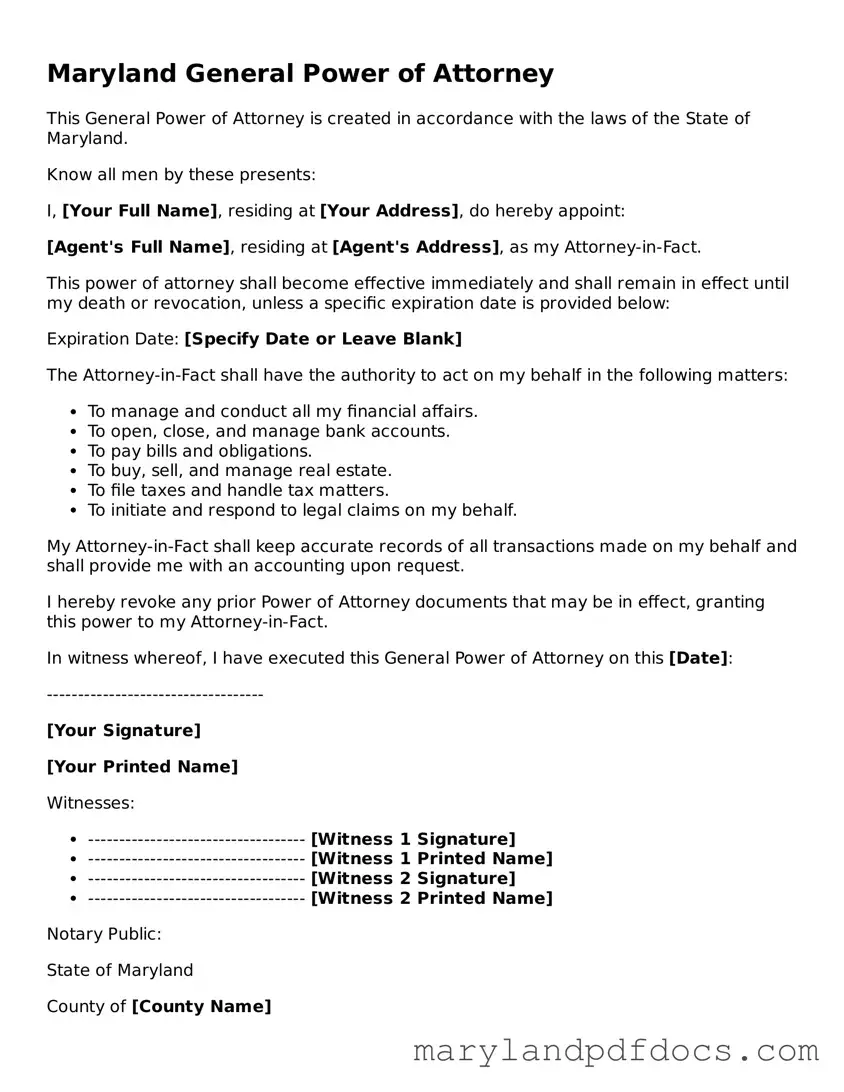Printable Maryland General Power of Attorney Template
A General Power of Attorney form in Maryland is a legal document that allows an individual, known as the principal, to appoint another person, referred to as the agent, to make financial and legal decisions on their behalf. This form grants broad authority to the agent, enabling them to manage the principal's affairs in various situations. It is essential for individuals to understand the implications of this form and how it can be utilized effectively.
To fill out the Maryland General Power of Attorney form, please click the button below.
Launch General Power of Attorney Editor

Printable Maryland General Power of Attorney Template
Launch General Power of Attorney Editor

Launch General Power of Attorney Editor
or
Free General Power of Attorney PDF
You’ve already started — finish it
Fill out General Power of Attorney digitally in just minutes.